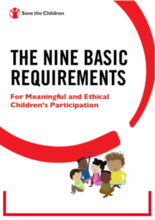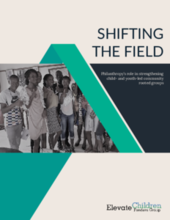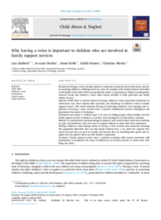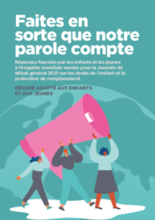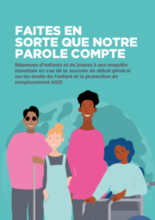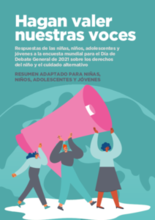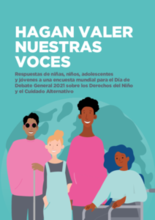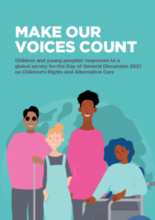Displaying 61 - 70 of 375
The Nine Basic Requirements for Meaningful and Ethical Child Participation is a key tool for ensuring quality child participation in any initiative with children.
This report maps current practice in philanthropic support for child- and youth-led work at the community level and offers strategic advice to donors on how to strengthen their funding modalities to achieve greater impact.
This article presents children’s own meanings and experiences of having a voice, derived from a research collaboration between UnitingCare and Queensland University of Technology.
This paper examines the academic discourse in child protection research concerning how Article 12 of the CRC is implemented and how it is manifested in child protection service (CPS) casework practices.
This article explores child welfare workers’ experiences of children’s participation in decision making in the child protection system.
Réponses d’enfants et de jeunes à une enquête mondiale en vue de la Journée de débat général sur les droits de l’enfant et la protection de remplacement 2021
Este resumen para niños y jóvenes acompaña al informe "Hagamos que nuestras voces cuenten: las respuestas de los niños y los jóvenes a una encuesta mundial para el Día de debate general de 2021 sobre los derechos del niño y los cuidados alternativos".
Respuestas de niñas, niños, adolescentes y jóvenes a una encuesta mundial para el Día de Debate General 2021 sobre los Derechos del Niño y el Cuidado Alternativo
This report was commissioned by a group of civil society organizations (CSOs) in an effort to get a broad sense of what children and young people themselves think about their experiences in alternative care.

